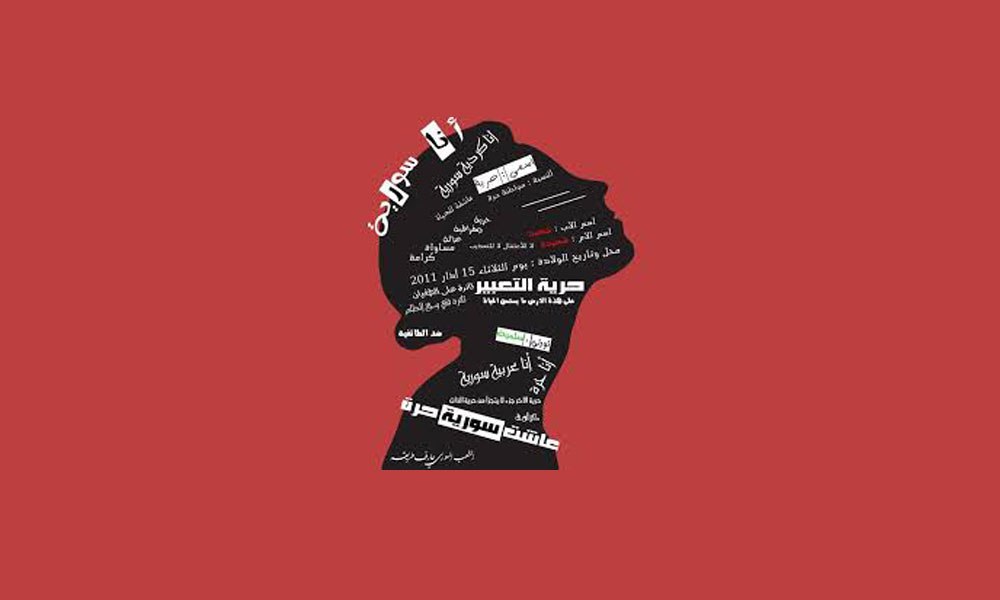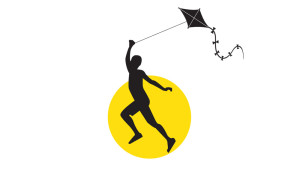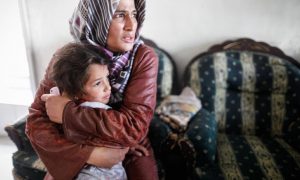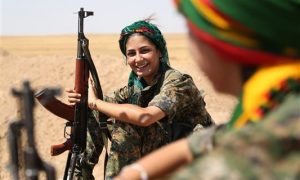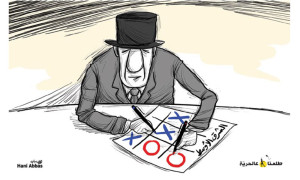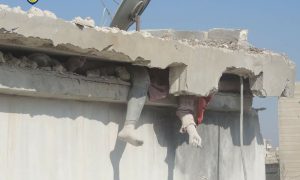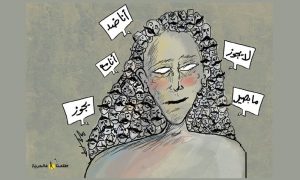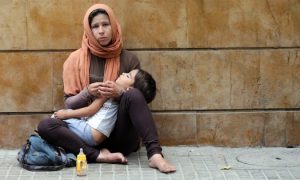George Katan
29 September 2016
Syrian women were seen participating alongside men in a peaceful revolution against an authoritarian regime that spares no tool in persecuting, oppressing, and humiliating men and women alike. Their many activities included demonstrations, sit-ins, speaking at rallies, distributing leaflets, forming new parties and coordination committees, editing revolution newspapers, aid activities, etc. They were also subject to detention, abduction, torture, killing, rape, and displacement. Some have taken on the responsibility of feeding their families when their breadwinners were killed or imprisoned. After Islamist factions gained control, people began carrying arms and women’s participation dwindled.
- Women under the rule of the Syrian regime:
The authoritarian regime, secular as it claims to be, did not offer much regarding women’s issues before and during the revolution. Its civil laws were left up to religious institutions to decide, leading to laws that discriminate against women in matters of marriage and divorce, will and inheritance, among others. A woman needs her guardian’s approval to marry, even when she’s been divorced or widowed. Regarding mixed marriage, a Muslim man may marry a non-Muslim woman, while a Muslim woman may not marry a non-Muslim man, and authorities refuse to legislate laws for civil marriages.
Moreover, children born to Syrian mothers may not carry their nationality. There are rules for where women may live and go. Forcing women into coitus with their husbands is not punishable by law. A rapist may evade punishment by marrying his victim. Under the rule of the Ba’ath regime, so called “Honor killings” used to be punishable by a few months imprisonment, which was later upped to 5 years, while its equivalent, premeditated murder, gets capital punishment or life in prison. This has encouraged killing women under the pretense of “honor”!
The regime has also constricted all independent women’s rights activities, including women’s social services organizations that were launched before and after Syria gained its independence. Those organizations take a lot of credit in women’s struggle for their rights. The regime also turned the Women’s Union from an association protecting women and their rights into a political and security apparatus that monitors all social, cultural, and political activity for women to ensure its alignment with the regime’s vision. In addition, despite its claims of secularism, the regime has allowed “Al-Qubaisiyat’ organization to grow and impose extremely strict rules on women and society. It also adopted the “Convention on the Elimination of All Forms of Discrimination Against Women – CEDAW”, though it had reservations on some of its articles that go against its discriminatory treatment of women. It was also very selective in its application of the human rights convention and other similar conventions, stripping them of all potential to advance Syrians’ rights, men and women.
- Women outside the rule of the Syrian regime:
Women in areas out of regime control are not doing much better. Their situation may even be worse depending on the factions that control their areas, ranging from extremely fundamentalist (ISIS) to moderate Islamist. Instead of enjoying more freedoms in liberated areas, women have been subject to more restriction and loss of previously earned rights as Islamist factions adopt obsolete beliefs that classify women as inferior to men in intellect and piety, and confine their roles in society to domestic chores, child rearing, and satisfying their husbands, their superiors.
The voices of the people calling for freedom for all were drowned by the sounds of the battle. Policy now comes out of gun nozzles. Armed fighters not only control general policy but also impose extreme social restraints on the whole population, especially women, under the pretense of tradition, religious texts, and a dated male-dominant societal structure that is emphasized in the countryside. Such structure falls within the goals of political Islam of keeping women under society’s control and away from their freedoms. Treatment of women activists is best portrayed in the kidnapping of Razan Zaitouneh, Samira Al-Khalil and their work partners while they were carrying out their revolution duties in areas under the control of political Islam.
Everyone’s freedoms, men’s and women’s, are restricted in “liberated areas”, with women’s more so. This has caused the tremendous women’s participation during the times of peaceful protests to regress into marginal roles that stay within the limits that are outlined in religious texts, except for some aid activities. Their participation in fighting is also minimal as seen in the Kurdish forces or the regime forces where women are tasked with inspecting other women at checkpoints, or as seen in ISIS areas where women take part in security enforcing groups specializing in tracking violations of women against imposed rules.
- Political Role of Syrian Women
Women’s presence in opposition bodies such as the coalition for democratic change and the local councils has been meager despite the fact that those institutions are the most progressive. The few women who are present are merely there for nominal presentation, and to give the image of “modernity” to the coalition in front of sponsoring entities. Darker times may be ahead for women if political Islamist organizations get to be in power.
It is evident from the Syrian feminist movement that women may attain their rights only under a democratic, secular regime that would stand against the application of outdated rules that lag behind modern human advancement. The revolution would not be a true revolution if it sought to topple one regime only to bring another that would limit freedoms, especially those of women as that is the litmus test of a nation’s development . It would not be a revolution if it did not put forward progressive laws, the drafts of which are debated now, focusing on new civil laws that are based on the human rights convention and other treaties that complement it. Our first step towards that goal is to form independent women’s organizations to represent women and fight for their rights and for an equal footing with men.
Translated by Dima Alghazzy

